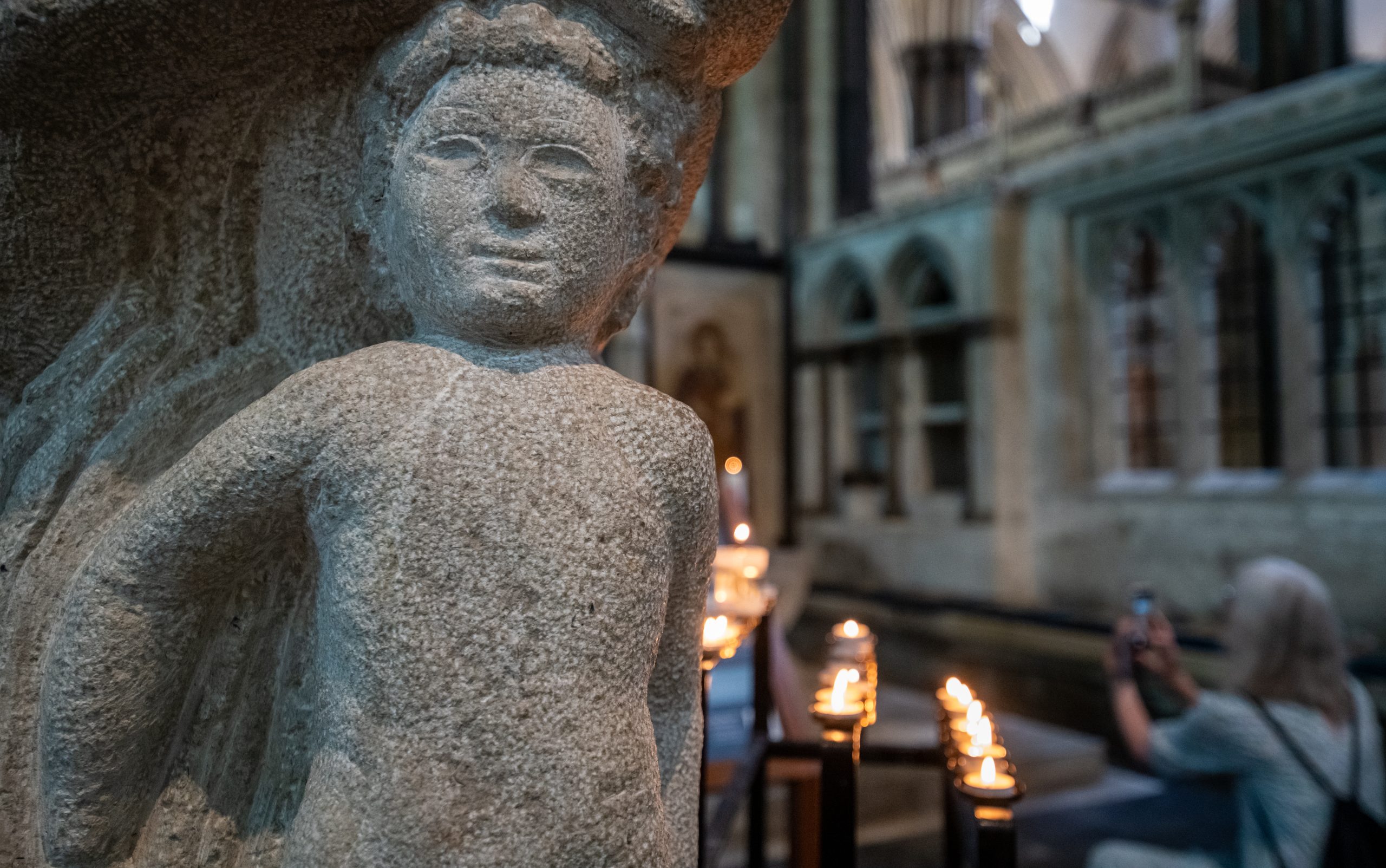Keeping God Central when Rebuilding Cultural Identity

Keeping God Central when Rebuilding Cultural Identity
A sermon by Revd Ross Meikle
The background to this sermon is how to recover from a loss of cultural identity.
That’s what is happening in the story of Nehemiah and Ezra, rebuilding a sense of ritual and community that was lost whilst the ancient Israelites were in exile.
And that may be what is going on for us in our post-modern world, where religious ritualism and our sense of community is somewhat eroded in favour of Reason with a capital R and individualism.
First, to Nehemiah – who I have to confess is not an inspirational biblical figure for me. I appreciate what he and Ezra sought to achieve. They had a lost community seeking meaning and new life. And turning to one’s heritage is not a bad idea – there is much that we inherit, and we can know more of ourselves by knowing where we have come from.
But with both the rebuilding of the temple detail by detail and also the strict enforcement of their law from Moses – some of which had been abandoned for a thousand years! – we begin to find some unhealthy and unkind side effects that we see at work in our own time.
By seeking to define who they are, the ancient people of Israel under Nehemiah become exclusionary. “If we are this, then you are that, and you are not one of us.”
Rules around marriage meant that people were not allowed to marry outside the community. And in the book of Ezra we learn that the whole gathering of Israelites agreed to divorce their foreign wives, and there is a specific complaint made to Ezra about the people Israel going to foreigners, including Moabites.
This blind adherence to their law and desperate clinging to racial identity markers ends up breeding a lack of compassion for those outside the tribe and an active cruelty to those women and children who are thrown out of the family and lose all sense of security.
Theologian John Dominic Crossan argues that the Book of Ruth becomes a parable against Ezra and Nehemiah because it plants within the lineage of King David a Moabite woman – the eponymous Ruth.
If they were to apply Ezra’s code retrospectively in time to apply to King David’s lineage, then they would be undoing their very ancestry.
The Book of Ruth points out the folly and hypocrisy of Nehemiah and Ezra’s attempts to follow their law to the very letter.
That’s not even to say that Tradition is bad.
But as the prophets remind us time and time again: these rituals are nothing without a heart desiring justice… hearts of stone to become hearts of flesh.
And that’s where our reading from John comes in. Jesus warns: An hour is coming when those who kill you will think that by doing so they are offering worship to God.
He is warning of when cruelty become credo…
He perhaps speaks of his own forthcoming execution – validated by the temple leaders because it will serve a perceived greater good and keep an oppressive status quo in place.
But we have seen throughout the history of the church and world this repeated hour when people are killed, lynched, executed… by those who think that the God of Life could possibly desire death, by those who think that God who is Love could want hate.
Perhaps today – in our world and church – we find ourselves with a sense of loss of cultural identity. The question of Englishness pervades our politics. And we have seen those who have killed and would kill others in the vain worship of Englishness.
And a model of re-establishing an English identity for many looks like Nehemiah and Ezra trying to enforce a rule and a vision that never really worked or even existed in the first place.
Perhaps there is some cultural ritualisation that needs to be rediscovered in our individualistic and uber-rational world. We see glimpses of it here when people light a candle, or queue for hours for the Darkness to Light service. But those rituals need to draw us together and to God – always stretching beyond ourselves.
Ezra and Nehemiah offered a way of living that never got further than historical re-enactment. They did not engage with God and as a result the fruits of the Spirit – love, gentleness, kindness – are hardly recognisable. Even the self-control is passed over for an external control and pressure.
Rituals are important, and sorely lacking in our western world where everyone wants a village but not everyone wants to be a villager.
So, the challenge for us as the Body of Christ in our world and in the Church is to ensure that all we do collectively grows within us the fruit of the Spirit – the good fruits by which we will be known as belonging to God.




